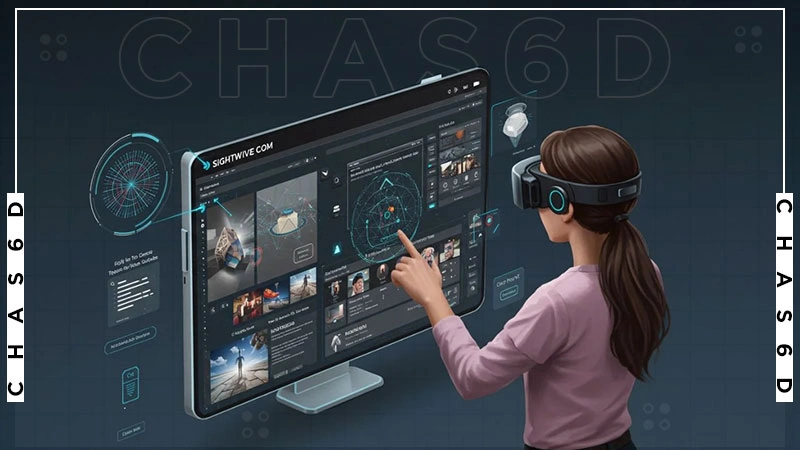Computer literacy is an increasingly important skill in many areas of life, from the workplace to managing daily tasks in our personal lives. In fact, in 2023, a study by the Federal Reserve Bank of Atlanta revealed that 92% of jobs required some form of digital or computer skill. In 2020, the importance of computer literacy was highlighted during the pandemic when our lives suddenly depended on computers to work, continue our education, and socialize remotely. It demonstrated that using a computer effectively—and having access to the internet—was not only important but essential.
With the 2020s now well underway, computer literacy has only grown in importance, whether it’s for streamlining business operations, excelling in the workforce, pursuing an education, or enhancing the quality of our personal lives. Today, we’ll explore its importance across these different areas of life.

What Is Computer Literacy?
Computer literacy refers to the ability to use computers and similar technology to carry out tasks effectively. It can refer to simple tasks such as using a word processor or browsing the web to performing more complex tasks such as computer programming. Since technology rapidly changes, the meaning of computer literacy is constantly shifting to encompass these developments.
Computer Literacy and Business
When it comes to business operations, computer literacy helps enhance productivity, improve communication, and deliver a competitive edge, helping businesses thrive. Platforms like Microsoft Teams and Slack allow for quick and easy communication within a company, enabling people to promptly touch base when needed and address concerns. These platforms also enable communication across time zones and remote work by enabling people to join meetings, remain updated on changes, or contribute ideas and process updates from different locations.
Other software and tools enable businesses to make more informed decisions by collecting and sharing data insights in easily digestible formats. The convenience of digital calendars and cloud storage also makes it quick and easy to monitor important meetings and appointments and to easily share necessary documents and track project progress.
When digital systems like these are in place, businesses can be streamlined for efficiency and focus on delivering better-quality offerings for their clients, allowing them to stand out from the competition.
Computer Literacy and Employment Opportunities
Building computer literacy can make you a more valuable candidate for jobs and help you accelerate your career. As noted earlier, most jobs available today require some form of computer savvy, so you can help yourself stand out in the job market and excel at your work by taking the time to understand what computer skills are relevant and desired in your profession.
Generally, navigating a computer operating system like Windows or iOS, office tools like Microsoft Office Suite or G Suite, and communication platforms like Zoom or Skype are foundational to basic workplace computer literacy. Depending on your job or desired career path, you can take the time to learn programs specific to your needs, giving you an advantage in kickstarting your job search or career.
Even if you already have a strong level of computer proficiency for a role, you will want to continue upskilling to complement your skill set or help you move into new positions. With the fast-paced nature of technology, it’s also essential to stay updated on new software and digital tools to keep your skill set relevant.
Computers and access to the internet also allow job seekers and professionals to network, keep in touch with colleagues, and impress prospective employers with an online resume or website. LinkedIn is a hub of professional activity that can help advance your job search and career, while platforms like WordPress or Squarespace allow you to showcase your resume uniquely and memorably, setting you apart from other job seekers.
Computer Literacy and Education
Today, school and computers go hand in hand, but not just because school helps students build their computer literacy to support their personal and professional endeavors. Computers allow students and teachers to communicate online and share lectures, resources, notes, and assignments. Using computers also makes the learning process more engaging and accessible to students. Online, students can find resources in various formats that best suit their learning styles, and they can make the content accessible to their needs. This allows students to learn in the optimal way for them and at their own pace.
Beyond formal education, computer literacy allows anyone to participate in classes or pursue learning based on their interests or needs. It makes information far more accessible and enables people to brush up on their skills or learn entirely new ones. Computers make lifelong learning convenient and fun for people of all abilities. However, there are barriers that still need to be overcome to make computers and the internet accessible to all students.
Computer Literacy and Everyday Life
While computer literacy offers many practical qualities, it also offers entertainment and can enhance the quality of our personal lives. From maintaining friendships through social media to gambling online and seeing new sites change regularly, access to digital devices and the internet opens up a world of possibilities. Social media platforms like Facebook, Instagram, and TikTok allow people to remain connected with friends and family and to keep pace with new entertainment and trends.
Access to digital devices also allows people to find essential services like healthcare more easily, staying updated on local and world events, and find information that may not otherwise be easily accessible. These features help people stay informed and more in control of their health and well-being.
Final Thoughts
Computer literacy is more important than ever in the 2020s. It assists in many aspects of life and provides advantages and opportunities in our work, education, and personal lives—making it an essential everyday skill.










